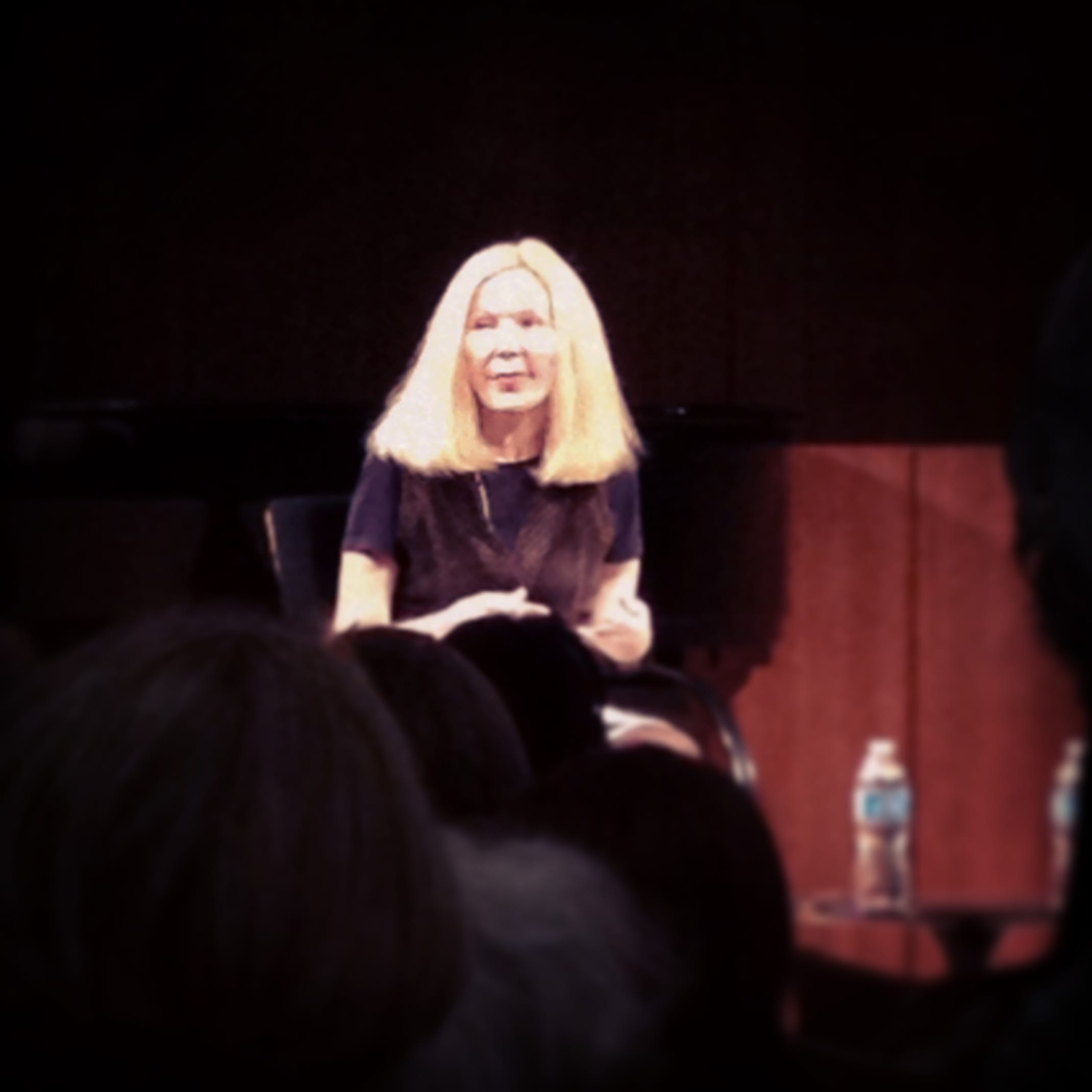Behind the Beautiful Katherine Boo
Sometimes it seems that I have spent most of my MFA in nonfiction listening to professors and students alike rave about Behind the Beautiful Forevers by Katherine Boo. While I have yet to read her acclaimed narrative nonfiction account of Annawadi, a makeshift settlement in Mumbai, I have heard only the highest of praise for her book. Ms. Boo has achieved rock star status in the nonfiction mafia, and after hearing her speak at the Brooklyn Public Library this past Sunday – in conversation with Amy Waldman, author of The Submission – I am now a groupie as well. Here are a few of the great points Ms. Boo made on Sunday about writing nonfiction:
- When you’re writing about social injustice, don’t just rely on the fact that it’s a story people should read. You still have to make it a story that people will want to read. Remember, a reader has many other things to do than read your book.
- Additionally, when writing about social injustice, you, as a reader, want to feel the gravity of the situation, not just the writer pressing the importance on you.
- Reporting and investigative research are key when doing immersion journalism. Ms. Boo said she was “reporting until the copy editor came at [her] with a gun” while working on Behind the Beautiful Forevers.
- When you take people’s stories to write nonfiction, you need to ask yourself what are you taking them for? Ms. Boo said she wanted to write Behind the Beautiful Forevers in an attempt to put information out in the world to try to make a situation better. She didn’t think her book would change all class problems in India, but, at the very least, it would raise some awareness.
- When writing, outrage over the issue isn’t enough – you have to care about the people you are writing about as people, not simply as cogs in the social issue. For example, Ms. Boo couldn’t only be outraged about misspent public funds in India; she also had to care (and write) about her characters as individuals who were affected by this situation.
- The Freedom of Information Act (in the U.S.A. and in other countries) is an underutilized tool for writers. You can use it to track documents and as a gauge for social accountability. “The things that aren’t there are more shocking than the things that are,” Ms. Boo said. She also told everyone not to lose hope – some of the documents she requested for her book took up to two years to materialize. Plus, Ms. Boo did not want the Indian authorities to know exactly who she was researching, so she over-requested documents to cover her tracks but also began to notice patterns by looking at such a large volume of information.
- In fiction, you are inventing something from nothing, but in nonfiction you are inventing too – you are crafting a story that wouldn’t exist (or be remembered) otherwise.
- When Ms. Boo started out writing her book, she thought it was going to be just about the society of trash-pickers in Mumbai. It turned out to include a murder case she never saw coming. At the start of the book, Ms. Boo was worried there wouldn’t be enough drama, and by the time she was done she worried there was too much. “How does that saying go?” Ms. Boo said, “When you make a plan, god laughs.”
- In writing about social injustice, don’t be afraid to put in the humor and love. She said you can’t make it one big tragic sob story.
- The question to ask yourself over and over when you are reporting, especially in a community or place outside of your own realm, is: “What would I do under the same circumstances?”
- On including the less likeable, complicated, use-the-system-to-her-advantage character Asha in her book, Ms. Boo said: “Don’t put Cruella de Vil in too early. You need the Dalmatian first.”
- Ms. Boo did not include herself in her book at all – no first person, no story of how she met and fell in love with her Indian husband and ended up in Mumbai – despite the encouragement of the publish team. Ms. Boo said that putting in yourself as an outsider takes the focus off of the people you are writing about.
- I managed to ask a question – about how Ms. Boo, a white, very blonde woman, an outsider – was accepted into and was able to write about a community that is not her own. Ms. Boo said that if you spend enough time with people, the differences start to go away and you connect on a deeper level than just the journalist who sweeps in for 36 hours to cover an event.
- Ms. Boo complained about how the standards for reporting on poor communities is so lax – often lazily including “some names and details have been changed” at the end of an essay. That would never fly when writing about a wealthy politician, she complained.
- Last, Ms. Boo said that one of her favorite things about nonfiction is the unexpected things that people say and to gain “access to the beautiful processing of people’s minds. It’s a privilege to honor them.”
Leave a Comment
You must be logged in to post a comment.



